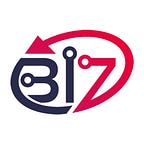Power Up Your Firm with a Winning Business Development Plan
A business development plan is a roadmap for how your firm will grow and succeed. It outlines your goals, strategies, and target market, and helps you track your progress over time.
Reaching your business targets isn’t just luck — it’s the result of hard work and patience. People who seem to succeed suddenly will tell you it took lots of dedication, trying different things, making connections, and careful planning.
Business development is all about finding and making new chances for your company to do well by building good relationships and looking for new chances in both current and new areas.
Building a Successful Plan
To make a great business development (BD) plan, take charge, be flexible, and always think about what the client needs. Your plan should evolve over time; it’s something you should check and use every day. Always aim to get better and try new things. Be ready to change your plan as business trends change.
Make the most of what your firm offers by asking experts for help with research, marketing ideas, getting feedback from clients, checking prices, and anything else that can boost your work and help you succeed.
Why is a business development plan important?
A business development plan is important because it helps you focus your efforts and resources on the most important areas. It also helps you to identify and capitalize on opportunities.
Web3 for Business: Why Your Business Should Be on the Blockchain
How can a business development plan help your firm succeed?
A well-written business development plan can help your firm succeed by:
- Helping you to define your goals and objectives.
- Identifying and targeting your ideal customers.
- Developing strategies to reach and engage your target customers.
- Measuring your progress and making necessary adjustments.
- Communicating your plans to investors and partners.
Section 1: Executive Summary
An executive summary is a brief overview of your business development plan. It should include the following:
Goals
What do you want to achieve with your business development plan? For example, do you want to increase revenue by 20% in the next year? Attract 100 new clients? Expand into a new market?
Strategies
How will you achieve your goals? For example, will you focus on networking with potential clients? Attending industry events? Developing targeted marketing campaigns?
Target market
Who are your ideal customers? What are their needs and pain points?
Section 2: Market Analysis
Market Analysis
A market analysis is a critical part of any business development plan. It helps you to understand your target market, competitors, and the overall market landscape. This information is essential for developing effective business development strategies.
Target Market
Your target market is the group of people or businesses that you are most likely to sell to. When describing your target market, be as specific as possible. Consider the following factors:
- Demographics (age, gender, location, income level, etc.)
- Psychographics (interests, values, lifestyles, etc.)
- Needs and pain points (what problems are they trying to solve?)
- Buying behavior (how do they make purchase decisions?)
Here is an example of a target market description:
Target Market
Small businesses in the technology industry with 10–50 employees. These businesses are looking for a law firm that can help them with corporate law matters, such as contracts, intellectual property, and employment law.
Section 3: Business Development Goals and Strategies
Business Development Goals
Your business development goals should be specific, measurable, achievable, relevant, and time-bound. For example, instead of saying “increase revenue,” you could say “increase revenue by 20% in the next 12 months.”
